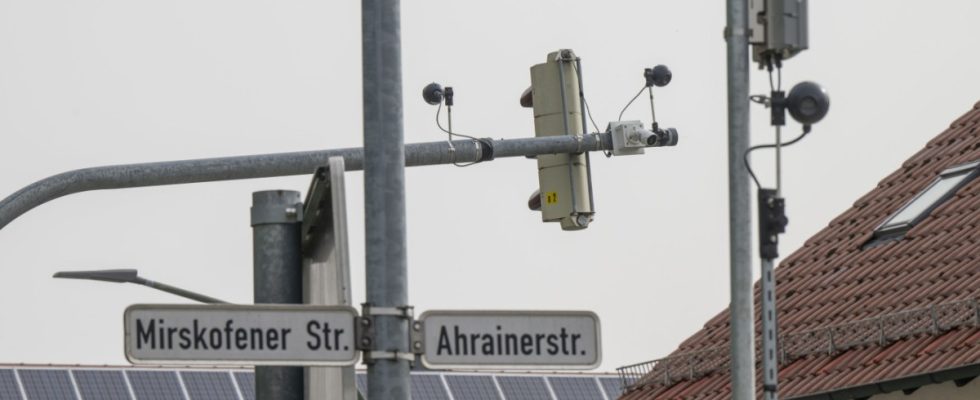Modern traffic light technology will be used to optimize traffic flow at an intersection in Essenbach (Lower Bavaria district) in the future. Transport Minister Christian Bernreiter (CSU) presented the “traffic light of the future” there on Monday. According to the information, it offers significantly more than just clearing traffic for certain directions: for example, priority for blue light vehicles, turning assistants and automatic green phases through camera detection. Emergency vehicles from the Essenbach Volunteer Fire Department can request an immediate green phase from the traffic light: This clears the way for the fire department and other cars that would otherwise be in the way of the emergency vehicle at the red light can drive away.
A collision warning system should bring more safety in cycling. According to the ministry, the system is controlled by a camera detector with artificial intelligence. A flashing orange light on the traffic light pole indicates danger. There are other tools for cyclists: A column installed on St 2615 (formerly B 15) about 100 meters before the intersection uses a sensor to determine the speed of a cyclist. Based on this, she recommends how he should adjust his speed in order to reach the traffic light when it is green. It is also possible to extend the green phase for cyclists approaching the traffic lights. The detection takes place via a radar detector that passes on the commands to the traffic lights.
A camera equipped with artificial intelligence detects whether pedestrians want to cross the street. You will then automatically request a green phase. This green phase will be extended for slow pedestrians, such as people with limited mobility, it said. Pedestrians could also contactlessly request green using radar sensors. The system detects hand movements at a distance of ten to 50 centimeters.
The aim of the pilot project in Lower Bavaria is to gain knowledge for possible use throughout Bavaria – for example in accident hotspots. The ministry said data protection was guaranteed. No people would be identified and no license plates would be recorded. According to the information, the Free State is investing around 100,000 euros in the project. The measures were implemented by the Central Office of Traffic Management at the Bavarian State Building Directorate in collaboration with the Landshut State Building Authority.

